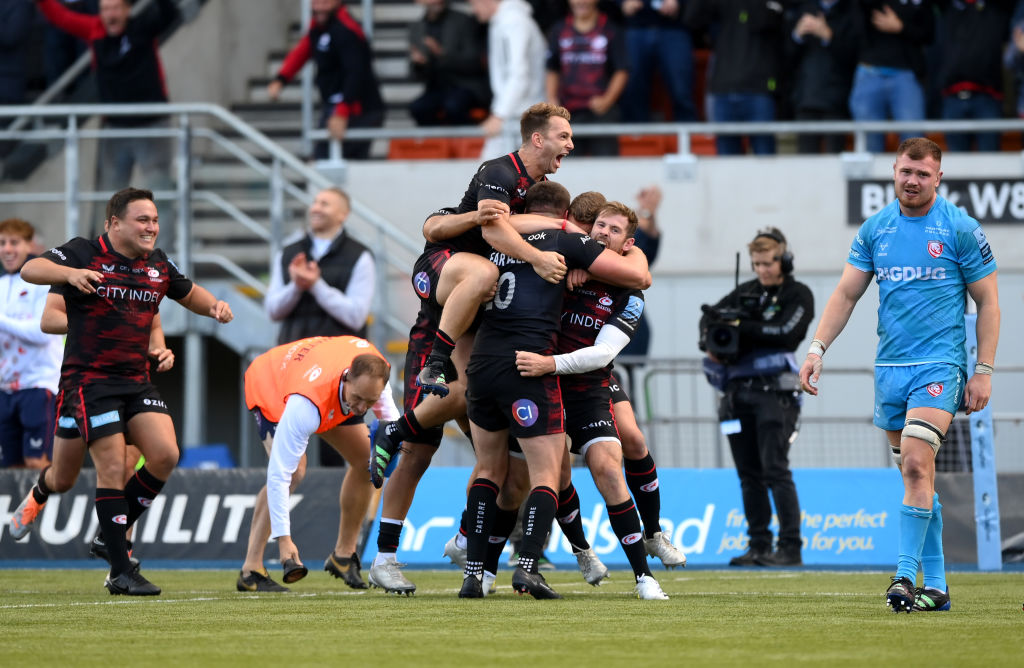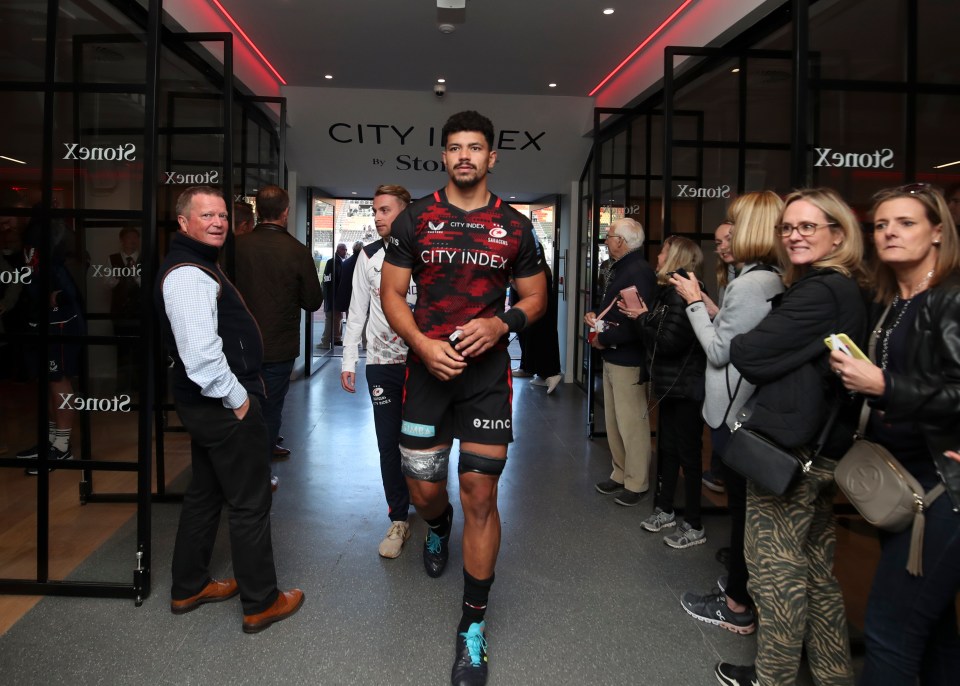Saracens CEO: “Innovation and desire push people to think differently”

When Saracens earned a last-second victory over Gloucester on Saturday, they did so in front of a semi-full new West Stand at their Stone X Stadium.
The north London club have been one of the few looking towards expansion, modernisation and development at a time when domestic rugby in England is struggling to support itself.
Having taken over as Saracens’ chief executive early last year, Lucy Wray has been part of a group spearheading the diversification of revenue streams in Barnet.
She cites a close relationship with the council, a determination not to rely on cash handouts from private equity firm CVC, a minority shareholder in the Premiership, and a resolve not to repeat the crises of the past as reasons for their ever-modernising facilities.
“With every crisis there’s an opportunity. You cannot waste a crisis,” Wray told City A.M., referencing Saracens’ demotion for breaching salary cap rules.
“We spent a long time looking at ourselves thinking ‘right, how can we come out of this three times stronger?’.
“For us it’s not a vanity project, you’ve got to think out of the box to generate new revenue streams.
“All we’re looking at now is how we get financially sustainable, you’ve got to think about required investment and annual repeatables.”
Stone X Stadium, nestled between Hendon and Finchley Central tube stations, is now home to Middlesex University students, media company Sportable and other partners.
The stadium has become a form of business hub for the area – guaranteeing Saracens precious income away from fluctuating attendances of rugby matches.
“We have anchor tenants like Middlesex University, who have taken a 30-year lease with us, so that is valuable,” Wray added.

“We’ve got Sportable in the East Stand and a private school use the [artificial] pitch Monday to Friday for their sports.
“You’ve got to build up these income streams. We know that 15 games of rugby [a year] is not going to make us financially sustainable.
“We will have 1,000 students on site, a children’s playground, and a community cafe. It’s about being commercially valuable.”
While other clubs – notably Wasps and Worcester Warriors – are struggling simply to stay afloat, Saracens seem to have found some solutions to the sport’s broken business model.
Their new W Club, which accommodates 40 people at £13,000 a head per season and offers lobsters and table service, is the latest in a line of innovations aimed at diversifying how punters in the local area spend their money.
“We really wanted to create a first in rugby,” Wray said. “We took inspiration from the Long Room at Lord’s and NFL zones.
“We went out to America to look at how they do it because they treat sport as an entertainment product, which it should be.”
The W Club allows fans to watch as players walk through the tunnel and out onto the pitch, granting access to some of the biggest stars in the game. Price tag aside, it seems like an attractive prospect.
And rugby, as Wray suggests, is becoming more about the product. Jay-Z’s entertainment company Roc Nation has recently helped to revolutionise the way the United Rugby Championship markets itself, and its president Michael Yormark is one of the consortium who now have a controlling stake in Saracens.
“You’ve always got to think that there’s always someone out there doing it better than you so it is about learning and trying new things,” Wray added.
“[You need to] be adventurous, have ambitions to change things because if you stay with the status quo you’re not going to grow, you’re not going to close the gap to break-even and profitability.
“Roc Nation have shaken things up, they’ve come in and it is exciting. Traditionalists might not like it but we’ve got to attract a new fan base.
“If we don’t do it now, we’re the ones that are going to lose out. Innovation and desire push people to think differently.”